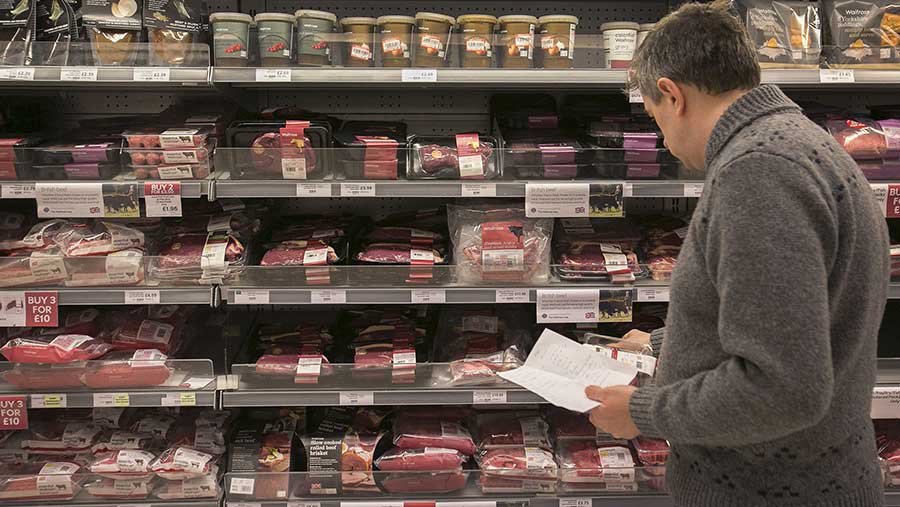Waitrose, Asda and M&S publish farm antibiotics data
 © London News Pictures/REX/Shutterstock
© London News Pictures/REX/Shutterstock Supermarkets Asda and Waitrose have followed Marks & Spencer by publishing antibiotic data on individual livestock sectors within their supply chains.
The move represents a great step in retailer transparency and reveals that many sectors are on course to meet or are already bettering Responsible Use of Medicines in Agriculture Alliance (Ruma) industry targets.
See also: US farm antibiotics use ‘more than double the UK’
Sales of antibiotics to UK farms have fallen by 27% since 2014 to a record low, Ruma announced in October.
Next year, national sector-level initiatives similar to the E-Medicine book (eMB-Pigs) are in the pipeline for the cattle industry, Farmers Weekly has learned.
Beating targets
Waitrose’s chicken, duck and egg producers are already under industry targets for 2020, while pig industry data for 2016 showed some room for improvement.
Asda’s farms were also performing well overall, with data still to be compiled on pork.
Marks & Spencer revealed a usage of 13mg/PCU, around half the industry average.
Steve McLean, head of agriculture at M&S, said: “Our farmers use antibiotics responsibly. They never use them routinely, never use antibiotics that are critical to human health and are committed to reducing use every year.
“However, we do not envisage never using them. Animal welfare is at the heart of our business and using them responsibly includes ensuring animals receive the appropriate treatment, under veterinary supervision, when they need it.”
In October, Ruma revealed a 27% drop in antibiotics use on UK farms, meaning industry targets had been passed two years early.
Concern over competition
NFU Scotland (NFUS) and Ruma both warned against antibiotic use becoming a competitive issue between retailers.
Penny Middleton, NFUS animal health and welfare policy manager, said: “If retailers and supply chains place too much pressure on producers to reduce antibiotic use, setting ever decreasing and unreasonable targets, there is a danger that health and welfare will be compromised.
“Farmers and vets need to be able to treat animals if they require it. The best way to achieve long-term sustainable reductions, and safeguard animal health and welfare, will be through a collaborative approach where best practice is shared and supported.”
Industry data is the prize
Ruma welcomed the recent publications but stressed that the “bigger prize” was industry data, rather than figures from individual supermarkets.
A Ruma spokesperson said a collaborative, pre-competitive approach, where best practice is shared and farmers are supported is the surest route to long-term sustainable antibiotic reduction while upholding animal wellbeing.
